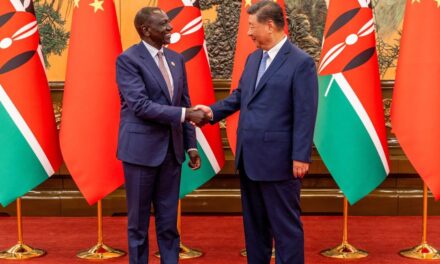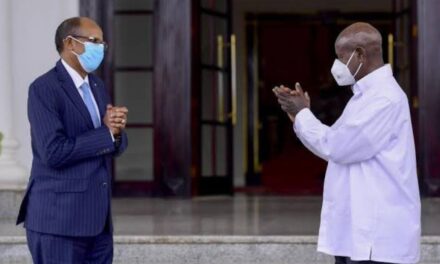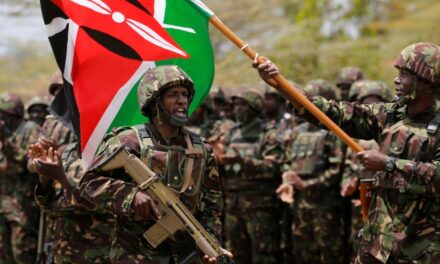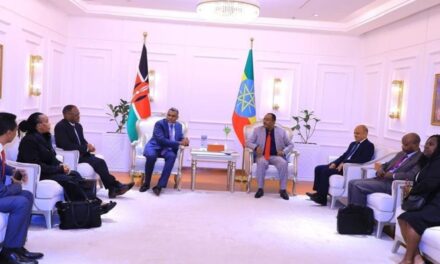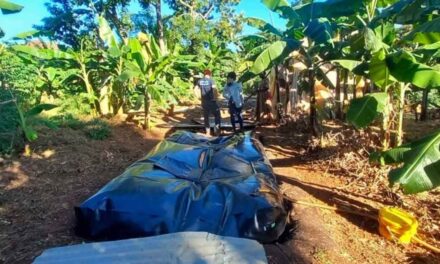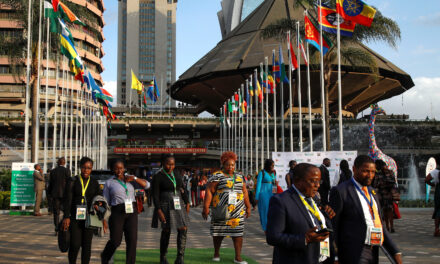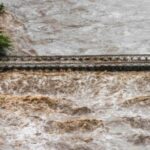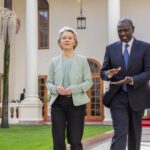

UK Chooses Kenya to Test Military Surveillance Glider Amid Atrocity Probe
| June 17, 2024

Kenyan President William Ruto and the UK Prime Minister Rishi Sunak at the COP27 climate summit in Sharm el-Sheikh, Egypt in 2023. Photo: Handout
Despite ongoing probe on Britain military’s continued atrocities to Kenyan civilians, Kenya will still be the first country to test a Britain-made near-space glider Zephyr which, if successful, will be used for military surveillance.
The solar-powered equipment will be tested in the Rift Valley region and is seen as a cheap alternative to SpaceX and Starlink programmes developed by billionaire Elon Musk.
According to a news article in the Britain’s The Times, published on Monday, June 17,2024, the pseudo-satellite, once it passes the stratospheric testing, will be mass-produced and sold at Ksh647 million (USD5 million) a piece.
“If the project is a success, the aircraft would be ready to fulfill missions providing telecommunications or military surveillance,” the report indicated.
The testing in Kenya is a big score for Britain as the solar-powered high-altitude platform station has been in development for the last 20 years.
Its testing is not expected to pose any danger to Rift Valley residents and wildlife as it is relatively small and light.
“It’s wingspan is the breadth of an A380 Superjumbo but the craft weighs less than an average British adult, depending on its payload,” the report added.
The new development means that the military pact between Kenya and her colonizer is strengthening despite claims of crimes that have risen from the association.
Kenya was selected for the testing because of the favourable weather conditions for the solar-powered equipment. The country is also chosen because of its geographical location and also had provided a testing ground for other types of high-altitude platform stations (HAPS) before.
Notably, it has been developed in Farnborough, Hampshire in the United Kingdom and funded by Airbus. “The idea is old but the technology capabilities have evolved such that this idea now is doable,” engineers behind the pseudo-satellite were earlier quoted as saying.
Currently, there are no economic benefits made publicly available as to how Kenya will benefit from providing a launching space for the prototype testing.
Two weeks ago, Kenyan Defence, Intelligence, and Foreign Relations Committee, led by Belgut MP Nelson Koech, unanimously approved a proposal to launch an inquiry into alleged crimes committed by the British Army Training Unit in Kenya (BATUK) based in Nanyuki, Laikipia County.
The decision to initiate the inquiry follows numerous complaints lodged by residents and key stakeholders regarding the conduct of British soldiers in the county.
These concerns were brought to the committee’s attention during their recent review of the Kenya-UK Defence Cooperation Agreement.
Of particular concern to residents are reports of serious offenses, including the alleged murder of Kenyan woman Agnes Wanjiru in 2012, believed to have been perpetrated by British soldiers in Nanyuki.
Additionally, allegations have surfaced that BATUK activities may have been responsible for the destructive fire that swept through a section of the Lolldaiga Hills Ranch in 2021.
Koech emphasized the significance of the inquiry as a means to deliver justice to aggrieved Kenyans. He gave the committee’s unwavering commitment to holding visiting troops accountable under Kenyan law for any crimes committed on Kenyan soil.
The committee had previously recommended that foreign soldiers, should they be found guilty of offenses such as murder, be subject to trial in Kenya. Moreover, the issue of corporate social responsibility, particularly about environmental matters, has been underscored as an essential aspect of the inquiry.
According to Article 8 of a confidential military agreement signed between Kenya and the UK in July 2021; Kenya and the visiting UK forces agreed to ensure thorough protection, preservation, and restoration of the environment comprising the training areas, service establishments, and installations.
The Defence Pact between Kenya and UK was signed on 27 July 2021 and replaced the previous Defence cooperation agreement signed in 2015 and which expired on 6 October 2021.
Through a letter dated 6 September 2021, then Defence Cabinet Secretary, Monica Juma, submitted to the house for approval, a copy of the agreement.
While the then committee on Defence and Foreign Relations of the 12th parliament was considering the agreement to facilitate ratification, the County Government of Laikipia, where the British Army Training Unit (BATUK) is based, tabled a memorandum raising serious concerns on the defence agreement.
The county of Laikipia stated that since the beginning of military activities in Kenya, and despite the presence of binding agreements, BATUK had committed several atrocities to the people of Kenya and the environment.
Laikipia cited the Lolldaiga Hills conservancy fire incident, the murder of Agnes Wanjiru allegedly by a British soldier, and the blast injury upon 10-year-old Lisoka Lessayun in 2015 as examples of the many atrocities committed by the UK army.
Your support empowers us to deliver quality global journalism. Whether big or small, every contribution is valuable to our mission and readers.





